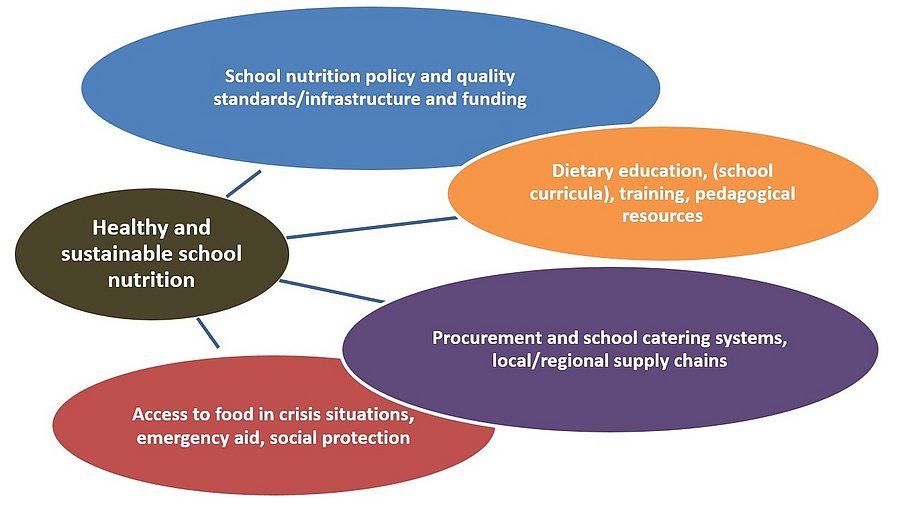We use cookies to enable you to make the best possible use of our website. Only cookies that are necessary for the operation of the site are set. Details in our privacy policy.

With the subject “Joint action for healthy and sustainable school nutrition”, Policies against hunger 2021 is focusing on school nutrition, as sustainable, healthy school nutrition is an indispensable building block for a sustainable improvement in the nutrition situation of children.
Promoting a balanced diet for healthy development is a priority and shared goal of the United Nations Decade of Action on Nutrition (2016-2025) and its implementing and partner organisations in the member states. It thus contributes directly to the implementation of the Sustainable Development Goals (SDG) as part of the 2030 Agenda. Achieving the SDGs also includes implementing the human right to adequate food, which is intended to ensure sufficient access to nutrient-rich food for all people of all income groups.
Far too many people still suffer from hunger and malnutrition. The situation regarding children is particularly worrying. More than 144 million children have stunted growth due to chronic malnutrition and 47 million children suffer from wasting (acute malnutrition), which has an impact on their overall development. At the same time, more than two billion people are deficient in micronutrients (hidden hunger), and another two billion are overnourished. These forms of malnutrition are associated with high economic and health costs and can be avoided.
SDG 2 - ending hunger and combating all forms of malnutrition in order to achieve food security - is still a long way off. In addition, the Covid-19 pandemic, numerous conflicts and climate extremes and their economic and social consequences are currently exacerbating the food insecurity of millions of people.
At the core of Policies against Hunger 2021 is the question of how sustainable school nutrition can be ensured by integrating the below-mentioned topics more closely:
Important topics in connection with the establishment of successful school nutrition systems include

We want to investigate the interrelations between diverse food production, development of supply and value chains for improved access to high-quality food, environmental and educational effects, health and hygiene, and social effects within these food systems.